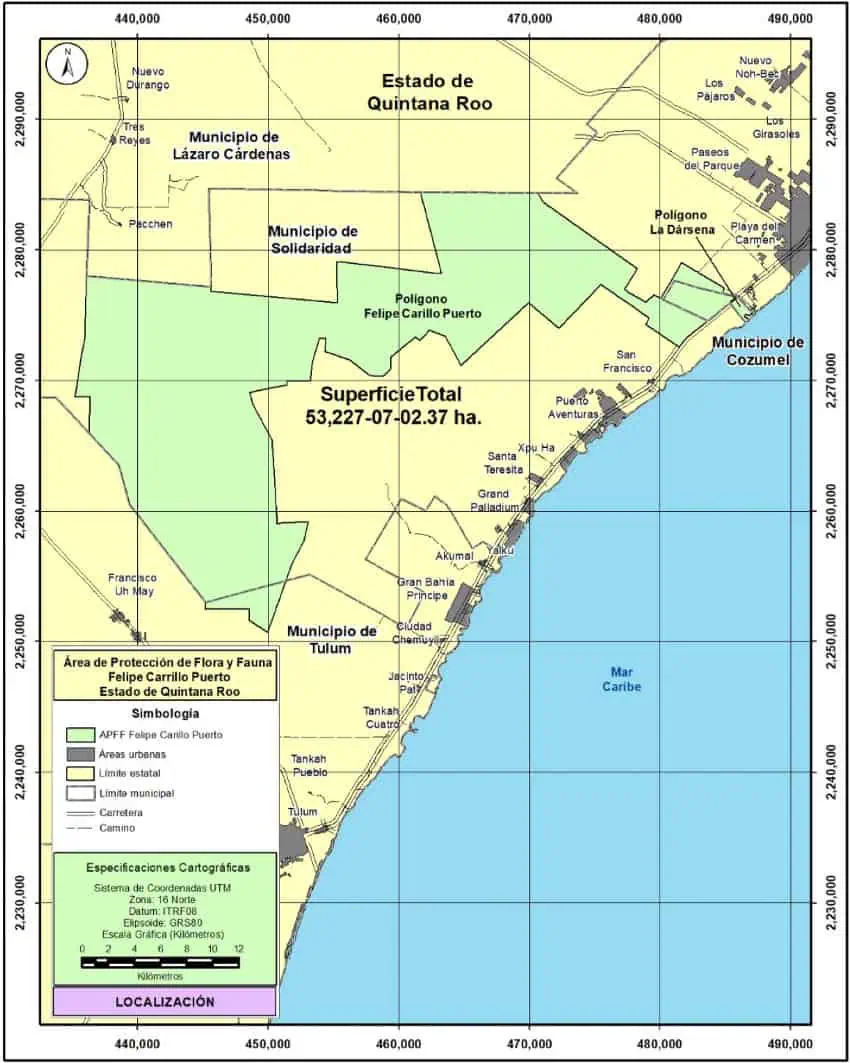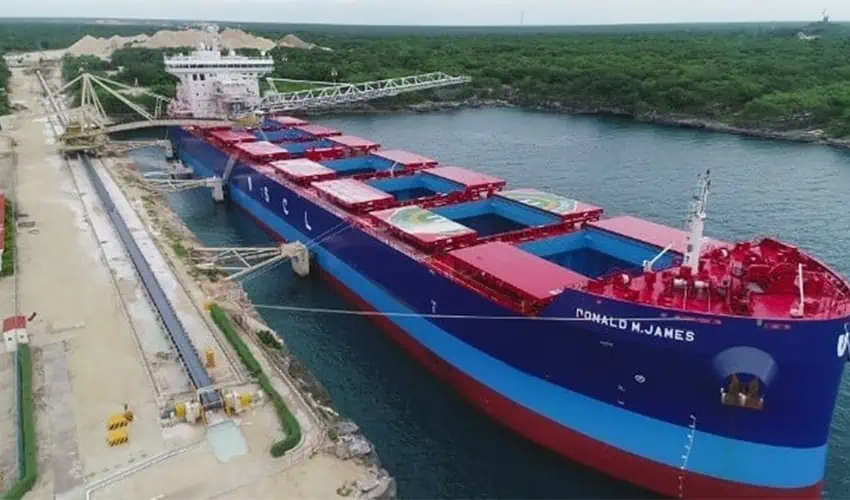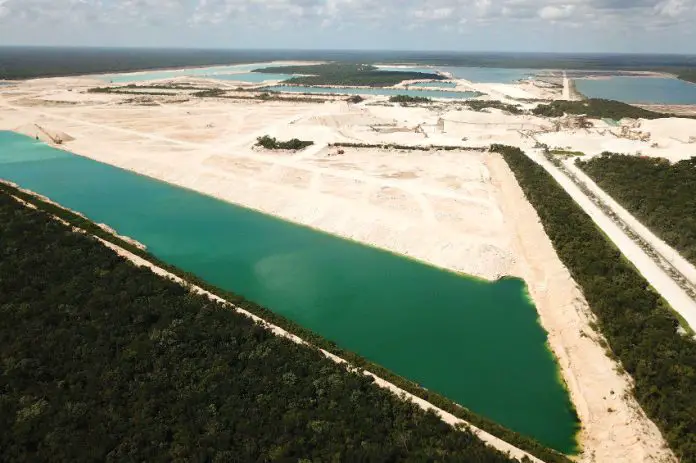The Alabama-based company Vulcan Materials said it would fight back using all available legal means after President Andrés Manuel López Obrador designated a new public Natural Protected Area (ANP) that includes the company’s limestone quarry and port in Quintana Roo.
It is another chapter in a long-running land dispute between Vulcan and the Mexican government, which came to a head in March 2023 when Mexican Navy personnel seized the company’s port to allow the Mexican company Cemex to unload a shipment of cement.

The new Felipe Carrillo Puerto Natural Protected Area decree was published on Monday night in the official federal gazette, and covers more than 50,000 hectares between Playa del Carmen and Tulum, including Vulcan’s Sac Tun limestone quarry and the company-run port of Puerto Venado.
“The expropriation of our company-owned land and port is yet another escalation and is a new violation of Mexico’s commitments under North American trade agreements,” Vulcan said in a statement. “This unlawful measure will have a chilling and long-term effect on U.S.-Mexico trade and investment relations.”
A group of U.S. senators tried to prevent the expropriation by introducing a bill in Washington to limit use of property deemed to have been illegally expropriated by foreign governments, just hours before the decree was published.
The bill would prohibit any vessel from entering U.S. ports after having previously used a port, land or infrastructure that the U.S. Department of Homeland Security says was illegally seized from a U.S. entity by a country in the Western Hemisphere.

López Obrador has previously accused the construction materials company of “ecocide” and ordered operations to shut down in May 2022, alleging illegal extraction and export of limestone. He has been trying to negotiate a government purchase of the property, which he says could be turned into a tourist destination, with cabins for rent and cruise ship docking at the seized port.
According to the ANP decree, the area is home to 1,063 native species of flora and fauna, 85 of which are considered “at risk” by the Environment and Natural Resources Ministry (Semarnat).
During his morning press conference on Wednesday, AMLO remarked, “There’s no way we are going to allow [Vulcan] to destroy our territory, besides, we tried to reach an agreement with them … which as always, was met with arrogance.”
According to the decree, permits, authorizations or concessions to carry out activities within the ANP granted prior to the establishment of the ANP shall remain in force until they cease to have effect. Vulcan’s concession over the Punta Venado maritime terminal in Quintana Roo — via its subsidiary Calica — is valid until 2037.

The decree comes at a sensitive moment for bilateral business relations, as López Obrador’s controversial judicial reform bill became law last week.
Business leaders from the U.S., Mexico’s top trade partner, have raised concerns that the new reform could lead to politicization of the Mexican justice system and erode Mexican democracy, dissuading foreign investment.
The company has said the dispute represents a failure by Mexico to live up to its commitments under the US-Mexico-Canada free trade agreement (Vulcan and the Mexican government have been in litigation under the auspices of the USMCA since 2018).
It also accused the Mexican government of illegally expropriating its assets, demanding more than US $1.5 billion in compensation via arbitration mediated by the International Centre for Settlement of Investment Disputes (ICSID).
Mexico had previously offered 6.5 billion pesos (US $389 million at the time) for the land, which Vulcan said was inadequate.
With just a week left in office, López Obrador will likely be on the sidelines by the time any arbitration decision is announced.
Instead, it will fall to President-elect Claudia Sheinbaum to manage Mexico’s strained relationship with Vulcan and other U.S. companies.
With reports from Reuters, Novedades Quintana Roo, El Financiero and Bloomberg
